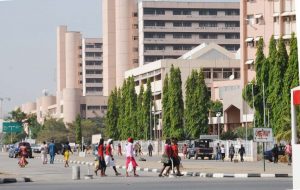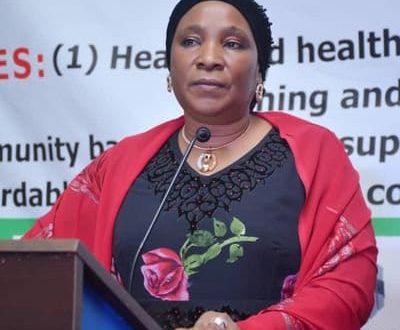By Pharmacist Zainab Ujudud Shariff
The health care subsector should be given close strong, sincere and genuine attention by the administation of President Ahmed Bola Tinubu to make it function adequately enough to enhance the wellbeing of Nigerians.
The sector can possibly be repostioned for greater effectiveness in delivering healthcare services to Nigerians through a holistic approach and not the usual disjointed way of thinking and actions. In essence, our health sector planners must be strategically innovative by thinking outside the familiar box full of yesterday ideas.
One way of thinking out of the box is to walk away from blindly accepting and implementing ideas wholesale from international health bodies, including the World Health Organisation (WHO), without subjecting such ideas to scrutiny and domestication by adding our own values to whatever such organisations market to us.
By thinking out of the box, Nigeria may in a matter of a decade achieve comprehensive health care for every citizen. Health care for all is defined as providing to every citizen a complete state of physical, mental, social and even spiritual being, not absence of diseases alone.
The Federal Ministry of Health as currently constituted is too unwieldy, suffers from poor budgetary financing, overburdened with responsibilities of managing primary, secondary and tertiary health care services, to achieve all its objectives. No doubt, the Ministry has qualified and experienced personnel in all the relevant fields, but they are overstretched.
However, the Ministry can be split into two by curving out a Ministry for Preventivne Health Care Services from it to manage health environment, climate health issues, improved potable water supply, better diet and nutrition and hygiene.
The proposed new Ministry could also address mental health issues or psychotherepy, depression, anxiety, violence against women, men and children as well as social issues such as drug abuse and rehabiltation of addicts. Drug abuse is widespread in the country, especially amongst our youths, women and elite as data from various sources indicate.
The Tinubu administration ought to encourage and strengthen the spread of health sector-related education, improve technology in the sector and accord greater funding for research in health. Nigeria has abundant human and natural resources.
Our endowments in flora can be deployed in the correct mix to discover medicines and minimise our reliance on imported medicaments. Nigeria should take the lead in doing so in Africa. Nigeria could develop indigenous medications for endemic diseases such as malaria and halt the importation of what we can produce within our borders.
It may be imperative to pay more attention to Primary Health Care (PHC) and urgently redefine responsibilities for the sub-sector, especially at subnational levels. It is equally disirable to address the issue of lack of qualified staff to meet the needed minimum standards at the PHC.
The tertiary health care sub-sector ought to be reorganized by replacing Chief Medical Directors (CMDs) with financial experts or qualified Hospital Administrators. Accountability of revenue generated by tertiary and secondary public healthcare facilities should be improved.
The need to establish specialized regional hospitals to cater for diseases and cases prevalent in each of the six geo-political zones is a worthy idea for exploration. This can reduce foreign medical tourism and waste of foreign exchange .
The decision by the Federal Government to establish the Department of Traditional, Complementary and Alternative Medicine in the Federal Ministry of Health is commendable. This is in tendem with looking inwards to use our medicinal plants and herbs to improve access to health services and the attainment of Universal Health Coverage.
As the nation moves toward making Health Care Services available, accessible and affordable to meet the health care needs of the majority of Nigerians, the National Health Insurance Care Services (NHICS) should be adjusted and open enough to provide access to all patients that require health care services regardless of their financial circumstances or where they live in the country.
Bonding health care professionals trained by government to work for a minimum number of years in the country before going abroad in search of jobs that fetch higher pay ought to be enforced by the government. It is also desirable that the pay package for health care workers should be raised. This may desuade some of them from abandoning the country and encourage others to train as health care service providers.
The support given to local pharmaceutical companies in billions of Naira by the Central Bank of Nigeria to expand their operations in the aftermath of the Covid-19 pandamic was patriotic. The policy should be sustained to ensure that our country attains medicines security. The Bola Ahmed Tinubu presidency should encourage the CBN to expand the intervention.
A highly selective implementation of the Public Private Partnership (PPP) option to boost healthcare service delivery can be considered in a strategic way and implemented beneficially by the government as part of reforming the health sector.
Many practical ideas have been generated, collated and documented from 1999 to date to guide effective implementation of the health sector reforms in country. These documents are gathering dust in the Federal Ministry of Health. The Bola Ahmed Tinubu presidency may consider mining them and implementing their key elements to trigger off a holistic re-arrangement of the health sector in Nigeria.

Pharm. Zainab Ujudud Shariff was a Director in the Federal Ministry of Health (FMOH).
 THESHIELD Garkuwa
THESHIELD Garkuwa




